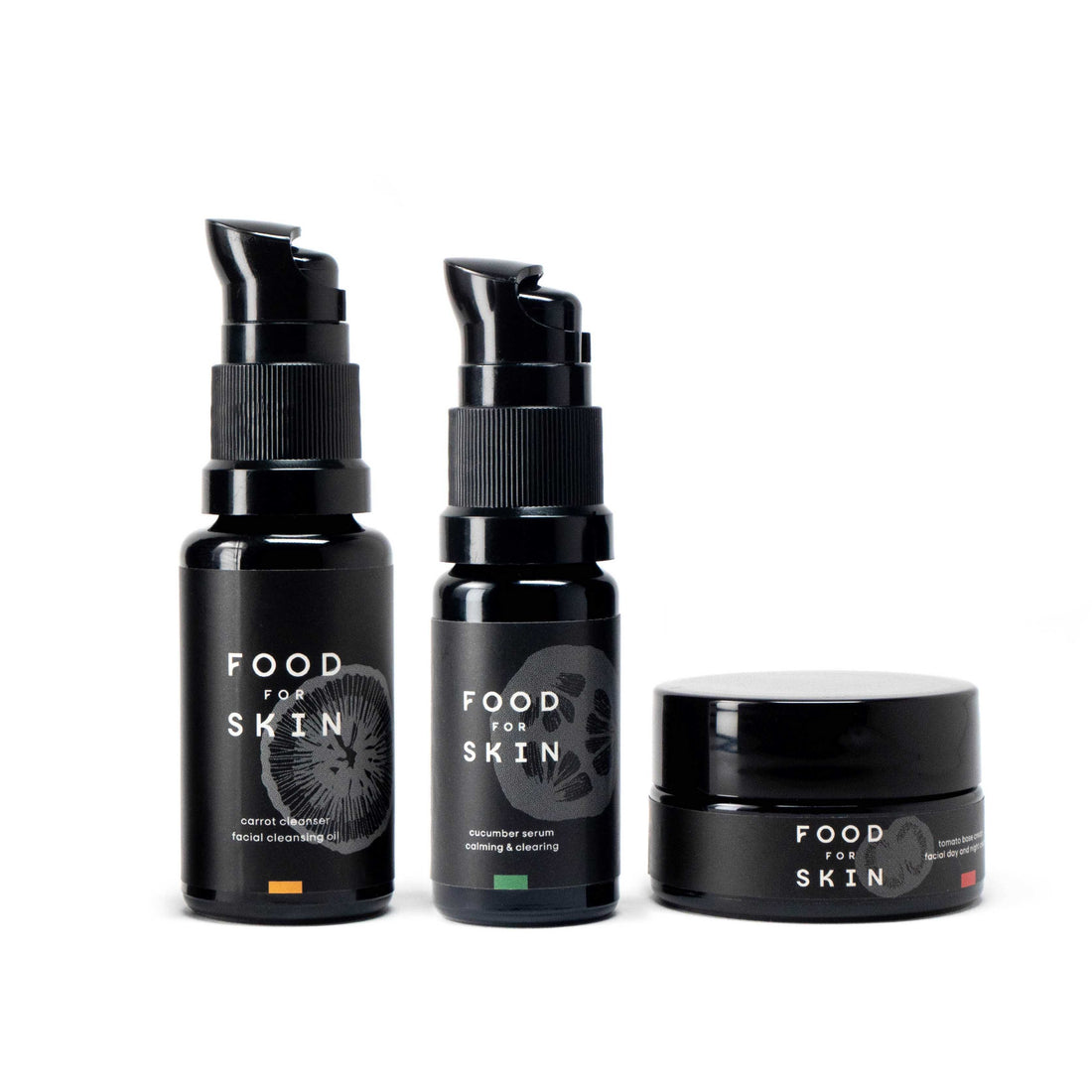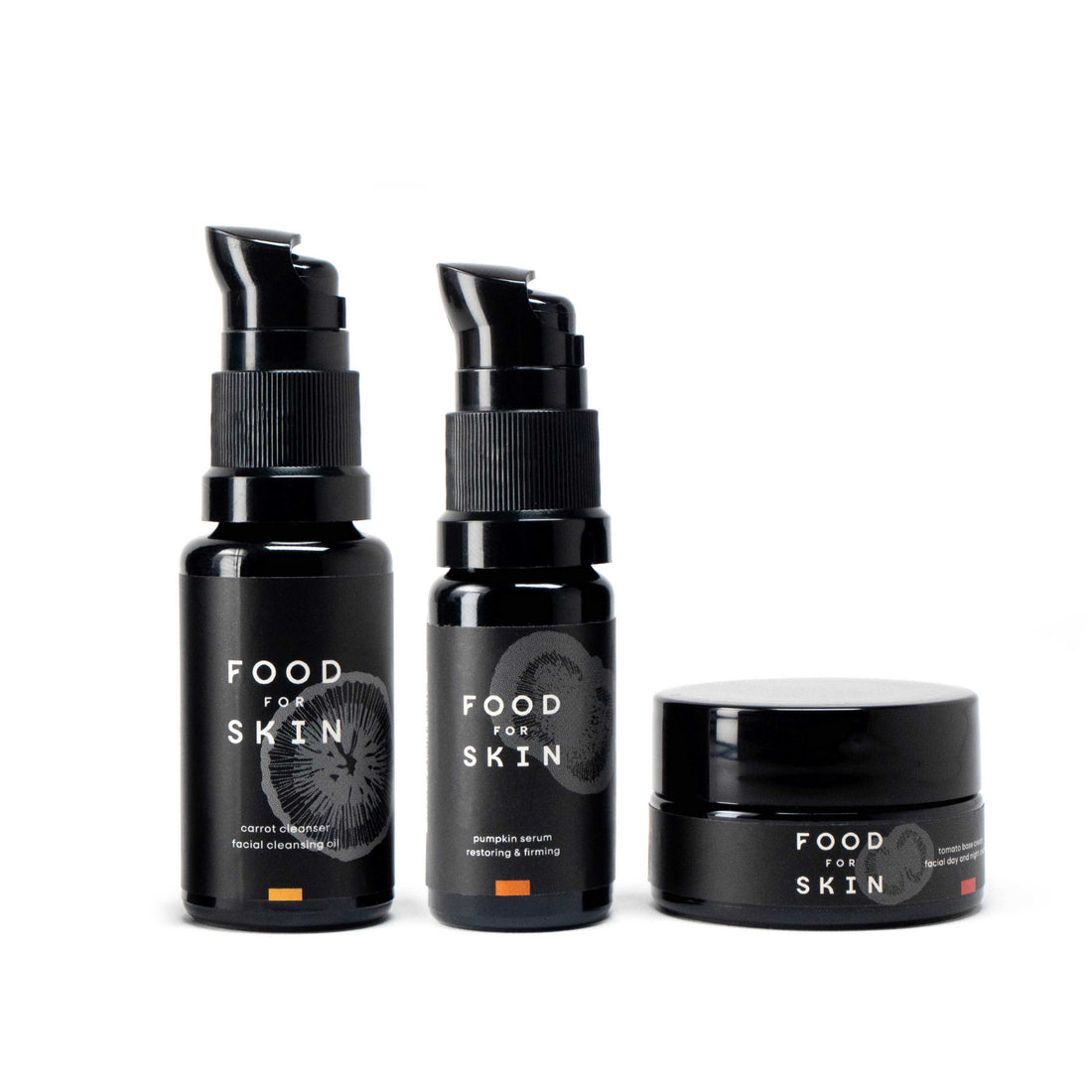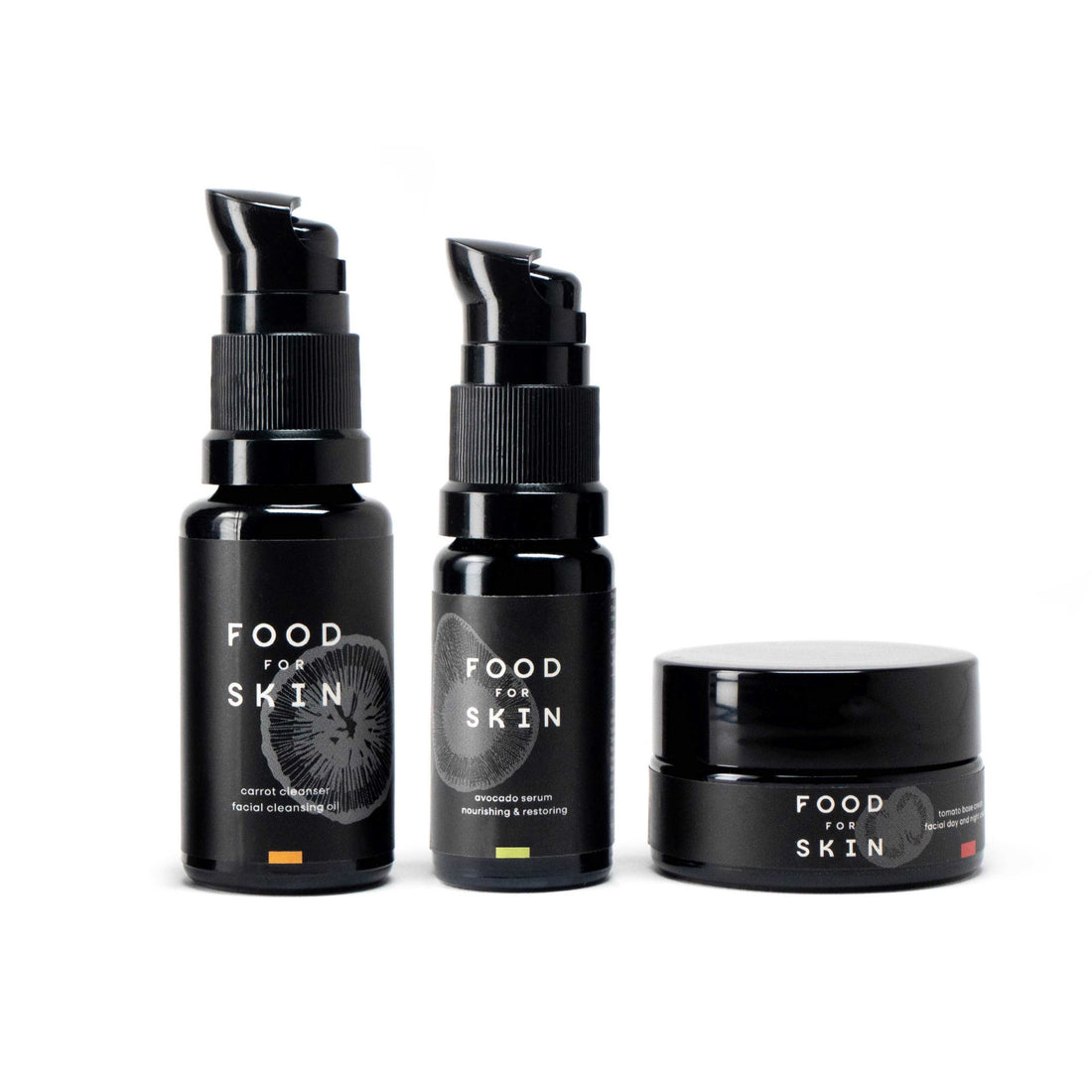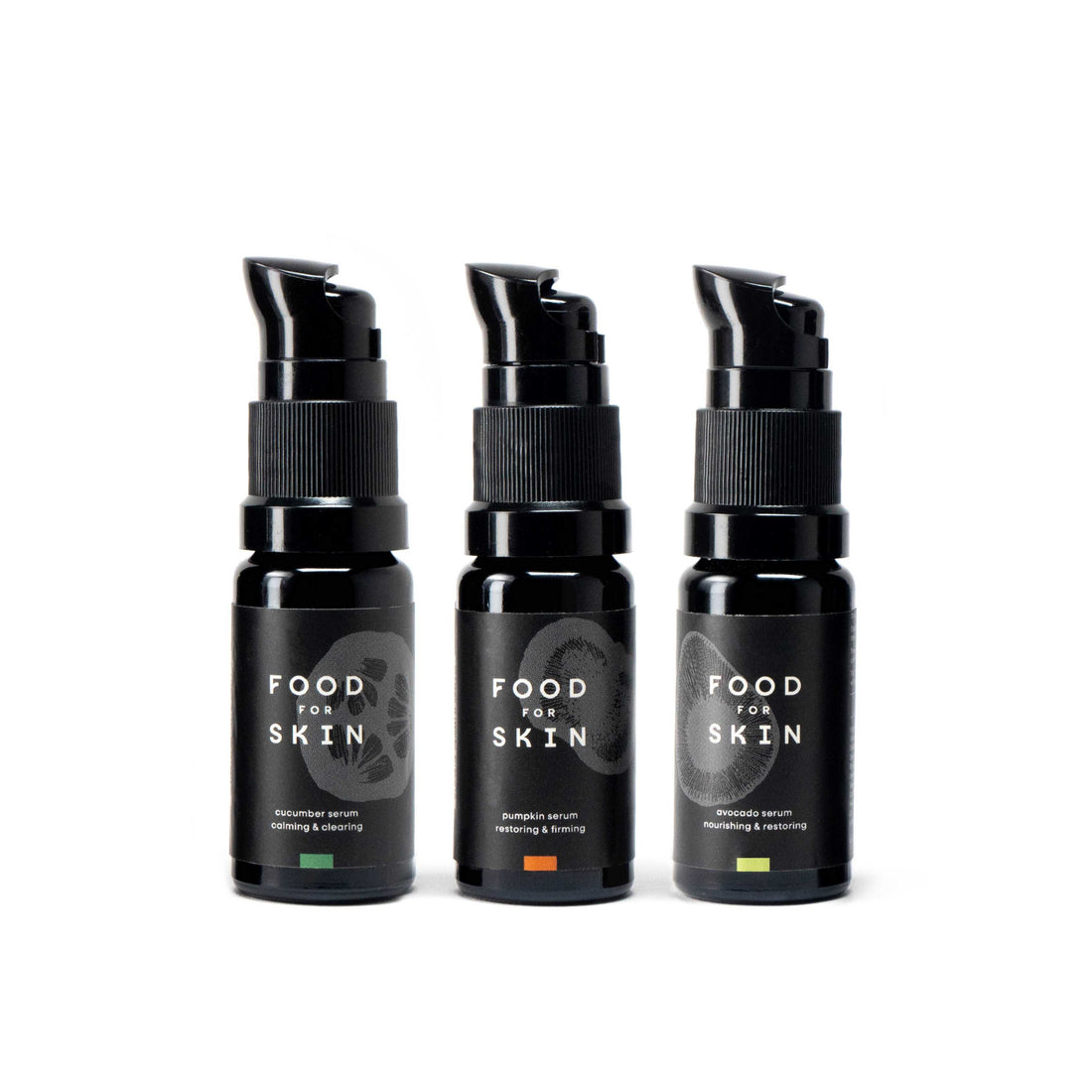Fortunately, we all get older every day. At Food for Skin we embrace that, but… we also understand that you “want to grow old a little nicely” and are not happy with sagging skin on your face. Wrinkles are beautiful and characteristic, but then preferably with a healthy complexion, a supple skin, without spots and dry spots.
Collagen and elastin play an important role in maintaining the firmness and elasticity of the skin. Therefore more about this in this blog!
Restore skin elasticity
The natural aging process reduces the elasticity of our skin. Around the menopause even very quickly. This is of course part of getting older, but how can you strengthen your skin, so that it continues to look healthy and calm? Fortunately, there are a number of powerful vitamins in nature that can support the skin fantastically. Read more below about the effect of collagen and how you can stimulate its production.
Elastin and collagen
The skin consists of:
- the epidermis; the outer layer of the skin that retains moisture and provides protection against harmful substances
- the dermis: which contains blood vessels, nerves, glands, and collagen and elastin and has essential proteins for building and maintaining the structure of the skin.

Collagen what is that
Collagen is a group of essential proteins that are naturally produced by our bodies and are mostly found in the connective tissues of the body, where they provide strength and firmness to tissues. Collagen is also known for maintaining a tight, flexible, firm skin.
What is elastin?
Elastin is also a protein found in connective tissue, but it is important to understand that it is a different type of protein than collagen. The presence of collagen provides strength and stiffness to connective tissue, the presence of elastin allows tissues in the body to return to their original shape after being stretched.
Causes of skin aging
As the skin ages, the production of these proteins decreases and the collagen and elastin fibers that help support the skin's structure tend to break down, lose their elasticity, thicken, stiffen and even clump together.
But in addition to the natural decrease, sun, stress, smoking and poor diet have a major influence on the breakdown of collagen and elastin.
What to do against skin aging?
In adults, loss of skin elasticity is usually related to the inevitable aging process, but can also be due to a deficiency of vitamins A, B, C, E and K. So make sure you eat and apply enough vitamins that are good for your skin.
Getting older is a very natural process and at Food for Skin we do not want to prevent it, but we want to make the skin as strong as possible, so that, among other things, the collagen production remains as high as possible, resulting in a fresh skin. How do you do that?
Collagen creams
In the market you see various creams with collagen. Don't fall for it! Because you can stimulate the production of collagen, but you can't introduce collagen directly into the skin from the outside. It is not possible to penetrate so deeply into the skin.
Collagen supplements
To boost your collagen, you will need to stimulate it from within. Taking collagen supplements can be a good addition to your skin care, provided they are of the right quality. However, not all researchers agree. There are also studies that show that collagen powders hardly or not at all end up in the skin. So do your own research on this. If you want to buy supplements, pay attention to the following:
- Collagen is made from animals, so not vegan (so you won't see this at Food for Skin).
- Often sweeteners or flavorings or other fillers are added, so pay attention to the ingredients list if you don't want this.
- Plant-based collagen does not exist as pure collagen. Collagen is animal-based. This can be partly imitated from plants. A plant-based variant therefore contributes to the production of collagen, but cannot replace collagen 1 on 1.
Collagen against wrinkles
To boost collagen and firm your face, we like to work with the beta carotene from the Carrot Cleanser . This is a kind of precursor to Vitamin A and this stimulates the collagen production in the skin. However, you need a long breath for this, because you will only see the effect after a few months. So no quick fix!
The philosophy of Food for Skin is to make the skin's own functions as strong as possible. We do not want to take over the function of the skin with our products, but purely offer support where necessary. Because if you influence the skin's own functions too much with all kinds of intense peels and treatments, the skin can become 'lazy' or 'confused' and you do not want that. You want the skin to get to work itself, in a natural way, so that it is perfectly capable of getting rid of dead skin cells, repairing dry spots and getting an even complexion on the skin. Then you create a 'strong' skin.
Our tip is actually: do as little as possible, but clean your skin every day in a very mild way, stimulate the skin in a natural way with a serum to help tackle problems and finish with a thin layer of cream, which can protect the skin against free radicals from outside: air pollution, bacteria and weather influences. Less is more!









